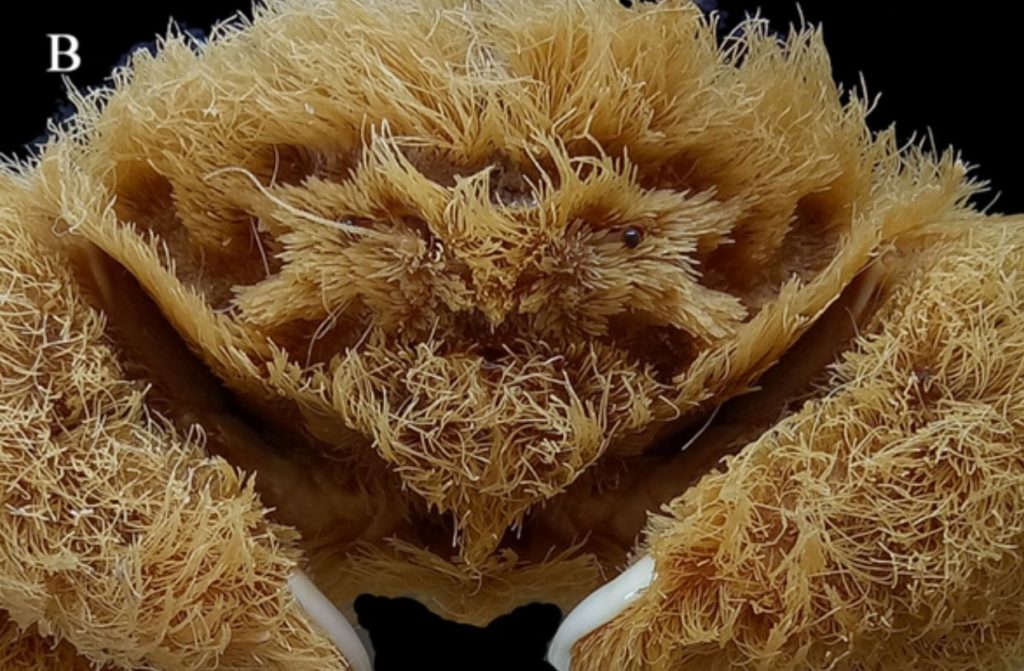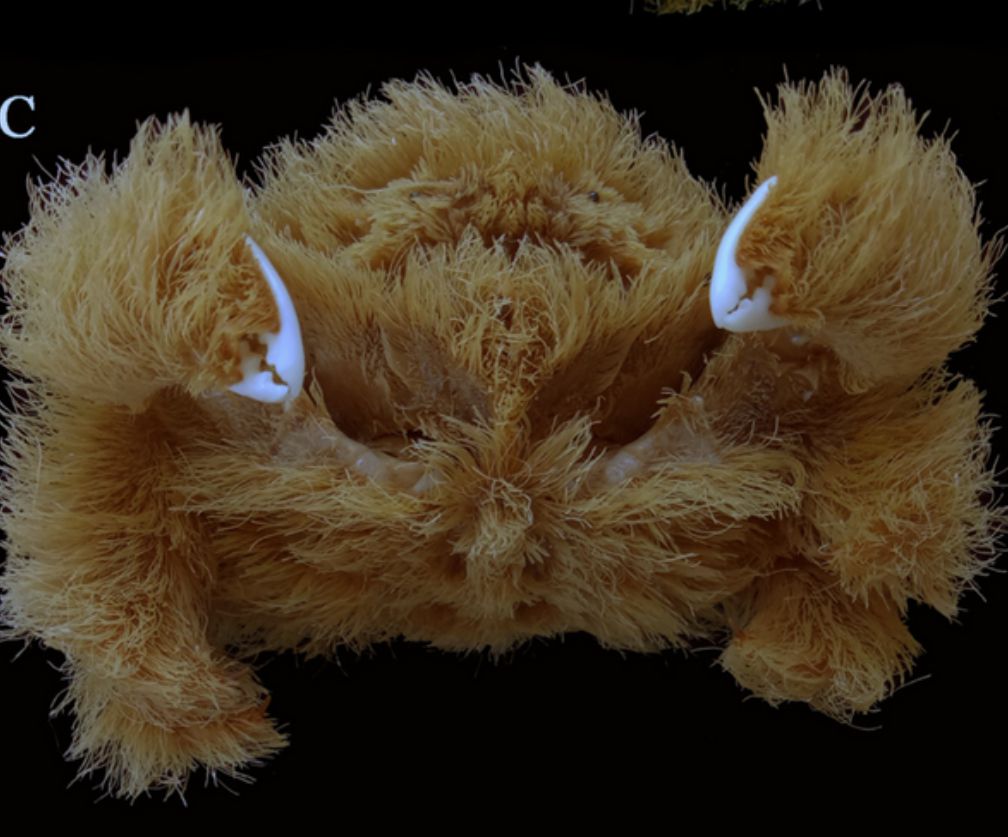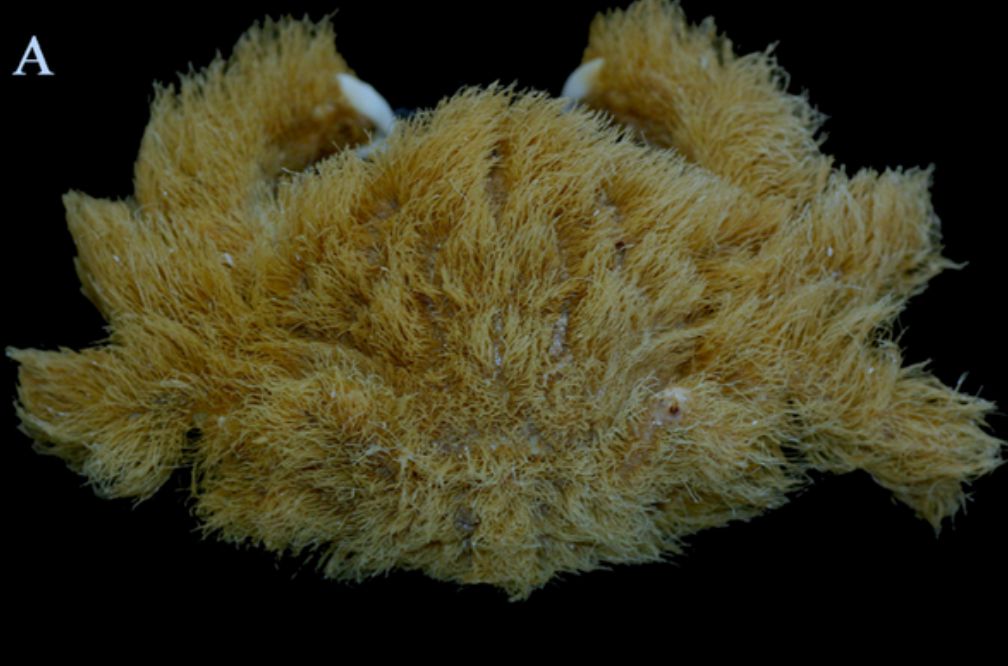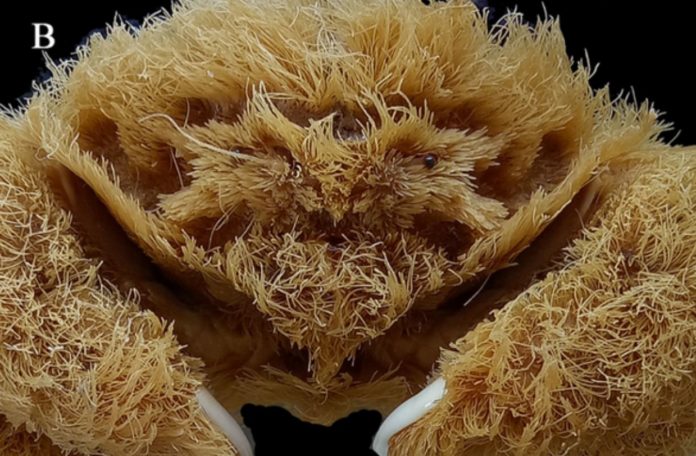The newly discovered species is called Lamarckdromia beagle, and it is a member of the family Dromiidae. These crabs are more popularly known as sponge crabs. It was found in Western Australia, not far from the town of Denmark.
The Lamarckdromia beagle specimen was found by a Danish family on a beach. They sent it to the Western Australian Museum so that scientists there could figure out what kind of animal it was.
The crab was later classified as a new species by Dr. Andrew Hosie and Colin McLay, a marine biologist affiliated with Canterbury University in New Zealand.

The Lamarckdromia genus contains three sponge crabs.
Crustaceans of the Dromiidae family protect themselves by using sea sponges and animals such as sea squirts.
Crabs use their claws to trim the creatures and wear them as caps.
Sponge crabs have uniquely developed hind legs for carrying their protective caps, according to Dr. Hosie, a curator of crustacea and worms at the Western Australian Museum.

“The sponge or ascidian just keeps growing and will mould to the shape of the crab’s back,” he explained.
“It will never attach … it forms a nice cap that fits quite snugly to the top of the crab.”
Dromiidae crabs wear “sponge hats” to hide from predators like octopuses and other crabs.
Some of the substances that these sponges produce are quite toxic, Dr. Hosie remarked.

“There’s not a lot of active predators that would be interested in munching through a sponge just to get to a crab,” added the author.
Dr. Hosie was perplexed as to why the Lamarckdromia beagle was so fluffy.
“The sponge or the ascidian that these things carry should offer it all the camouflage it needs,” he added.
“I expect that having the extra fluffy legs means that the outline is even more obscured.”
“The hair doesn’t help with holding the sponge down. It’s not like it’s Velcro, unlike some … spider crabs that will put seaweed on their back – their hair is hooked and stiff like Velcro .”
Even while sponge crabs may be found all over Australia’s coastline, the new species has only been discovered between Albany and Cape Naturaliste.
“You’ll find them in shallow water and down to a few hundred metres, commonly around wharf pylons or anywhere with substantial growth of sponges,” Dr. Hosie said.
“Very shaggy, surprisingly soft,” he remarked of the new species, which is hairier than previous related species. The color is a nice tan.
“We can’t really give a definitive answers as to why this species is so fluffy, we suspect it’s to help further camouflage its legs from predators.”
Image Credit: COLIN MCLAY/WA MUSEUM
You were reading: Crab washes up on the beach turns out to be a new species
